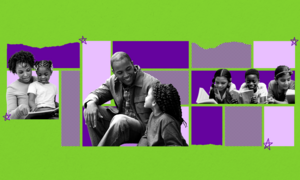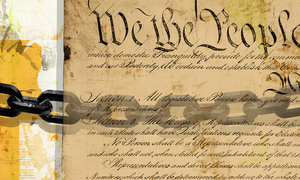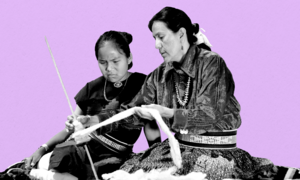What Is Social Justice Education?
A truly just society is one in which all people have the resources to lead secure and fulfilling lives and the histories, cultures and experiences of diverse groups — especially those who have been historically marginalized — are respected.
The goal of social justice, therefore, is to ensure democracy in practice: “To create a society in which everyone has access to the resources and opportunities to develop their full capacities, and everyone is welcome to participate democratically with others to mutually shape social policies and institutions that govern civic life.”

What Is Social Justice Education?
Back to School: Creating a Nurturing School Culture
This back-to-school season, educators, parents and caregivers can commit to partnering to support all young people. A nurturing school culture that prioritizes well-being along with learning is essential for keeping children in school and ending pushout — a critical step in dismantling the school-to-prison pipeline. Building and sustaining relationships in nurturing ways can help to create the sense of safety and support young people need for learning. The effectiveness of these practices increases when combined with strong family, school and community partnerships.

Creating School Culture That Nurtures Young People

Education Justice

Advocating for Public Education
The 1965 Voting Rights Act — 60th Anniversary
The 60th anniversary of the 1965 Voting Rights Act (VRA) reminds us that we need to not only preserve the protections of the VRA — and reinstate those that have been removed or diluted — but also to strengthen voting rights to achieve a thriving democracy in the United States. The VRA is more than a legacy of the Civil Rights Movement; it remains essential for ensuring equal access to the ballot.

Why the 1965 Voting Rights Act Is Crucial for Democracy

Our Votes Matter: Action Steps in Planning to Vote

Understanding Voter Suppression in Today’s Election Process
Becoming a Village and Growing Together
Before the new school year begins, let’s consider the ways that we can come together in our communities to nurture all our children. The proverb “It takes a village to raise a child” reminds us that parents and caregivers, families, educators and community members are all essential in children’s support ecosystem. Parents and caregivers are children’s first teachers and play a significant role in shaping their perspectives.

Growing Together: For Children and Families

Becoming a Village

Story Corner
Talking With Children About the Hard History of Slavery in the United States
The relaunch of the Teaching Hard History podcast series reminds us that discussing the history of slavery in the United States in age-appropriate ways can help young people understand how that history influences life today. Slavery is the institution that made racism a part of our nation’s foundation, and the legacy of slavery is present in many current systems that disproportionately affect Black children and families. If we are to build a more positive future together, learning this history is essential for healing and reconciliation.

Teaching Hard History: Grades K-5

Celebrating African and Indigenous Cultures
